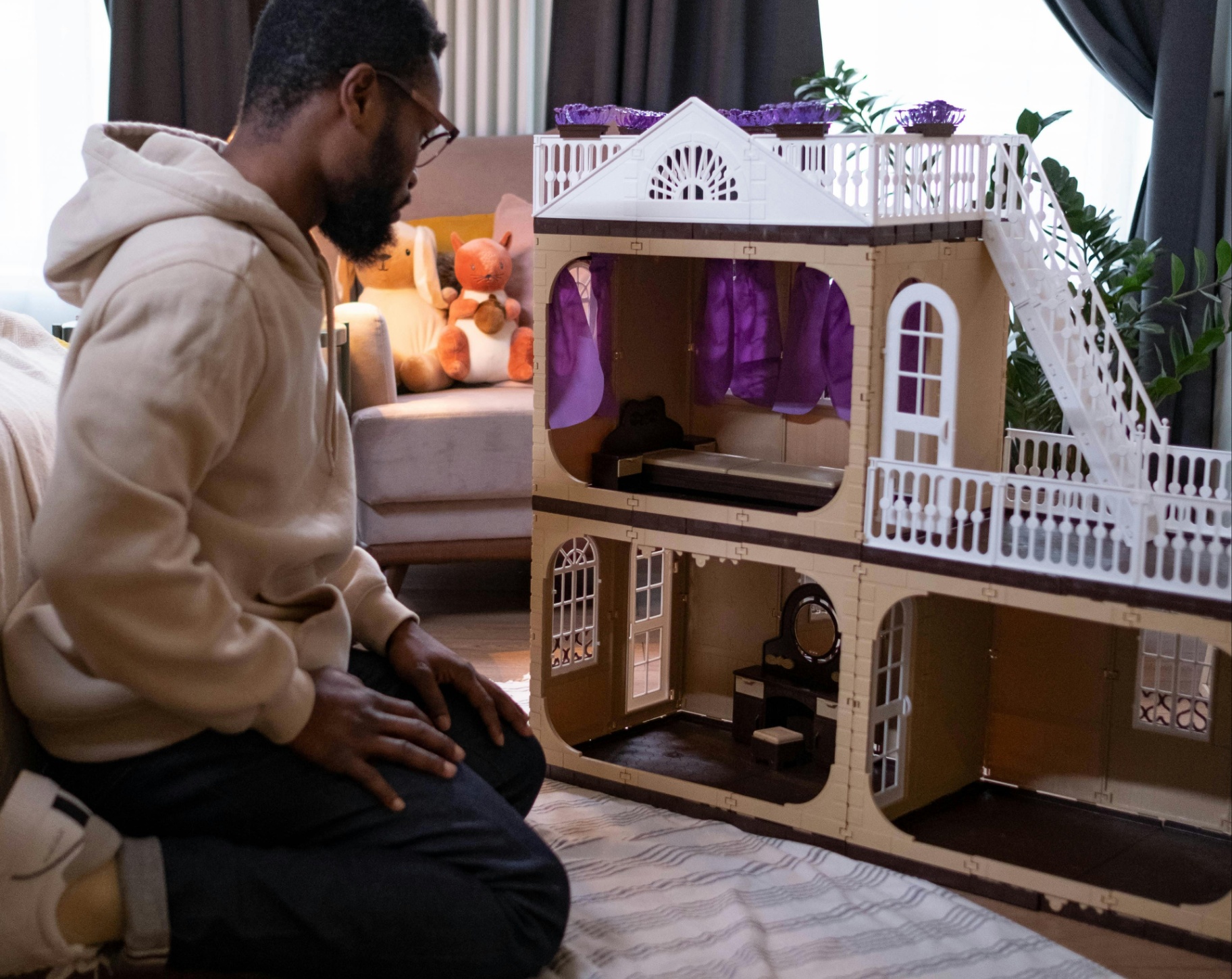Where is My Home? The Deep Roots of Housing Anxiety
There are a vast number of ways and different contexts in which you or I might ask “Where is my home?” These might range from a simple and banal request for directions up to and including a cry from the heart of the most visceral and existential kind.
Finding home is one of the central issues in human life. It is one of those concerns that is so fundamental in our lives that Jungian psychotherapists do not hesitate to refer to the archetype of home.

Photo by cottonbro studio
In Ontario right now, there is an advertisement on TV for the services of one of our major banks. It might be called crude but it is certainly effective. It features actors going through various everyday situations, except that, instead of their heads, there is a ponderously large model of a house affixed to their bodies, which gets in the way of everyday activities such as finding the family car inside a parkade, or putting sugar in coffee at a cafe.
The message is clear. These are people who cannot properly function in their daily lives because they are so preoccupied with house related issues. (Buying? Selling? Renting? Mortgage? We’re not sure.)
One thing is very clear. This ad is in many ways a highly accurate psychological snapshot of where many in our society currently find themselves. Along with many other types of anxiety, we live in a time of great housing anxiety.
The Many Forms of Our Anxiety About Home
As I wrote above, there are many different forms that our anxiety about housing can take in the midst of our contemporary world. If a person needs to buy a new home in the midst of the contemporary real estate environment, that situation brings with it a very specific set of issues. Similarly, if someone needs to sell a home in which they have lived for a significant amount of time, there are a whole set of anxieties associated with that.
Another distinct set of issues arises for those who are seeking to rent, or who are renting, and are facing an environment of steadily increasing rents. Although financing is often a fundamental part of buying and selling a house, there are also a distinct series of issues connected to mortgages.
In addition to these sorts of issues, there is a large set of specifically psychological issues related to the issue of feeling at home, wherever I live. Can I feel secure and safe in my physical home? Does my home nourish me?
Can I Find The Way to My Home?
What really is this home that we seek? What are we really looking for? Clearly a place of belonging, a place of security and rootedness, that sustains the inner life of the individual. A place that fosters the connections with the people who are closest to us.
Our culture has an attitude toward real estate that often involves a projection of the archetype of home onto a specific piece of real estate. If we look at the imagery and messaging around housing and idea of home in our culture, it often seems as if a specific piece of real estate is going to meet our needs, and fulfill the archetypal ache for home that we all carry. The message seems to be that if only we can identify the right house, with the right physical characteristics, location and so forth, our yearning for home will be fulfilled.
As a society, Canadians invest so much in our houses and physical residences, in every sense of the word. Also, there is often such a sense of anxiety surrounding the whole subject of our physical homes. Is there any way for us to have more freedom and more security around the archetype of home?
At Home in the Self
Perhaps our idea of where we are at home needs to change. It is so easy in our culture to become completely preoccupied with real estate and the physical house.
I’m aware of a recent case where a family moved out of a relatively expensive house in a very large metropolitan area, and consciously opted for a less expensive, multigenerational living arrangement in a much smaller centre. They did this consciously, because they wanted to focus on other matters in their lives than the sole issue of housing and how to pay for it. There was a conscious intent to focus on self-exploration, pursuit of the things in life that they were genuinely passionate about, and developing and sustaining deep genuine connections with others.
Although they might not have used this language, there seems to have been an awareness that the archetype of home pertains to something much deeper and different than a piece of physical real estate. That the sense of home that we are all looking for is much more concerned with connection to an an abiding inner reality. In Jungian language, this would involve connection to the inner reality of the Self.
There is an incredible richness to our inner life, and a great potential to connect with a deep sense of security and rootedness within ourselves, if we are willing to open ourselves to that reality.
One way of exploring that reality is through depth psychotherapy, especially Jungian analysis. Working in the context of a supportive and affirming relationship with a skilled Jungian analyst/psychotherapist can be a very healing and grounding experience, that contributes powerfully to the sense of being at home in your own real life.
With very best wishes for your continuing personal journey,
Brian Collinson
Registered Psychotherapist and
Certified Jungian Analyst (IAAP)
Certified Clinical Anxiety Treatment Professional
© Brian Collinson, 2024
